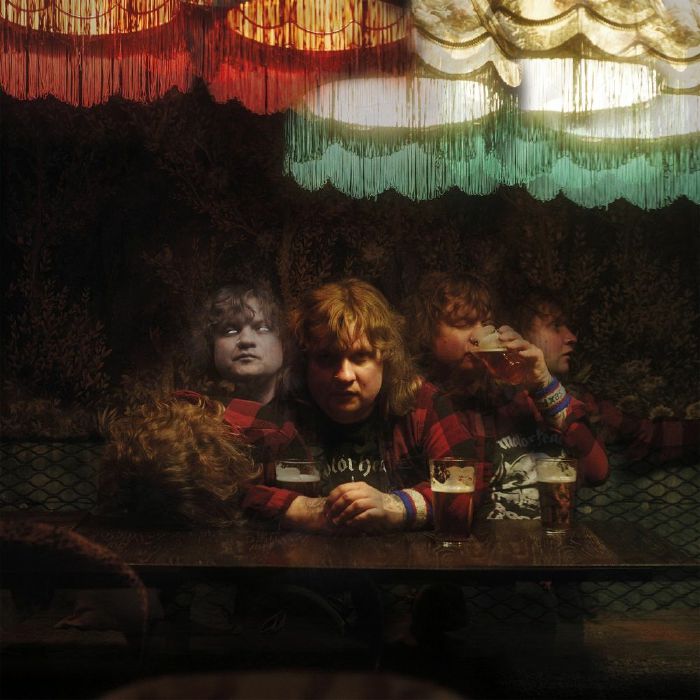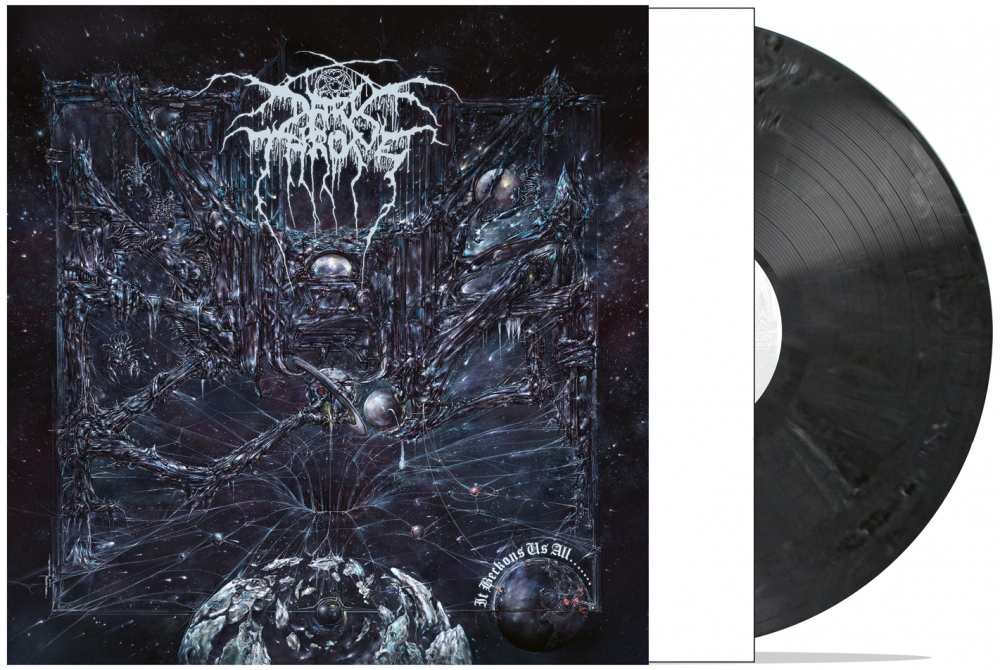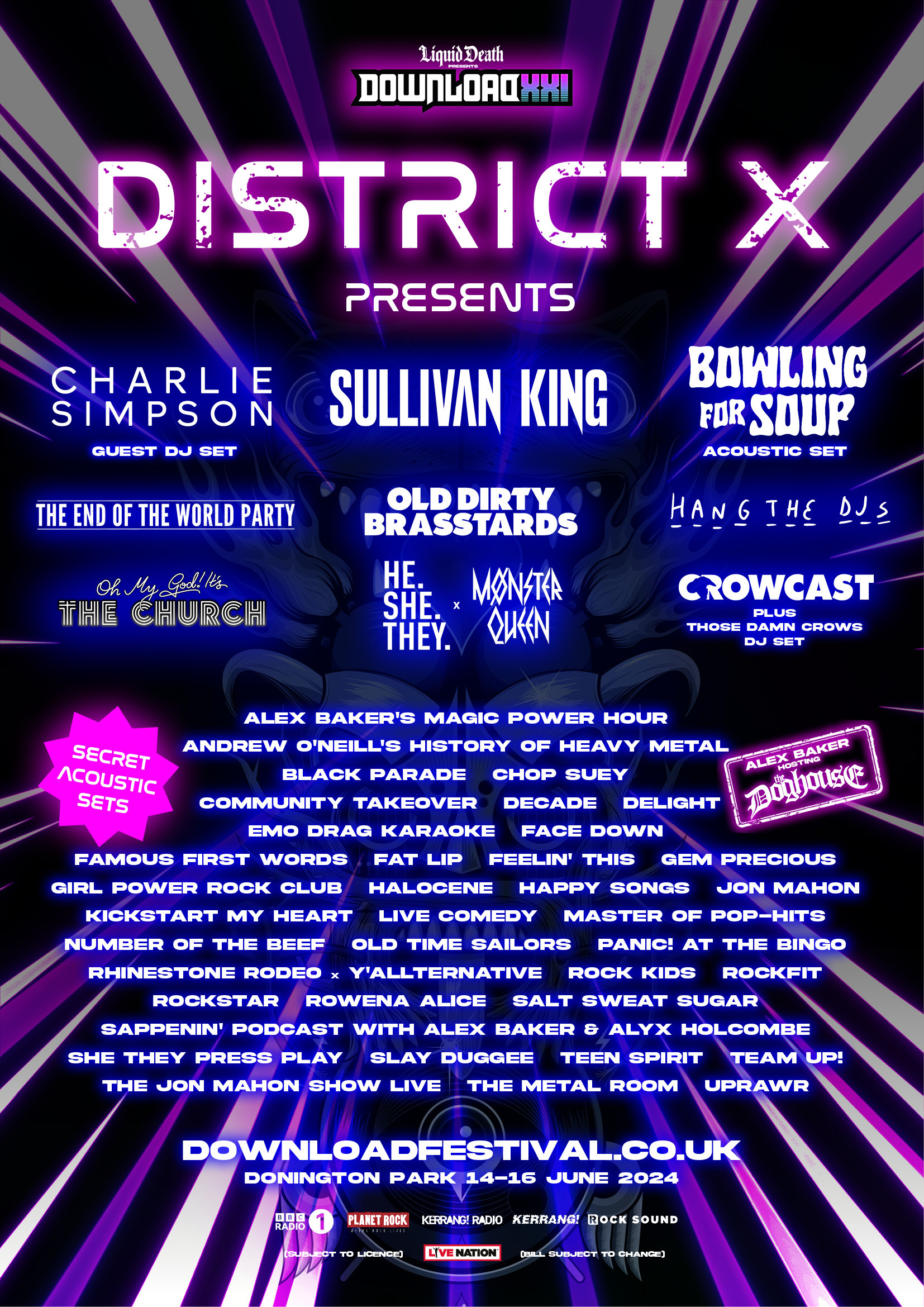Who is Junius that gave the name to your band?
Mike: The band name was inspired by the 18th century political writer who used “Junius” as his pseudonym. You can read more about him at http://en.wikipedia.org/wiki/Junius
Could you say a few words about your band to our readers? Things that you see as being most important to know, for those who listen to Junius.
Mike: Things that are most important to know… Hmm… Well, I for one would like people to know that we don’t consider ourselves a Post Rock band. We also don’t consider ourselves a New Wave band, a Metal band, a Prog band, a Punk band, a Goth band… We listen to and love music from all of those genres, but we wouldn’t call ourselves any single one of them. Genre labels tend to be limiting, and lead to people ultimately approaching music (particularly new music) with a less open mind. That, and we simply try to write music that moves us, and usually ends up being pretty loud, and (hopefully), epic.
Why did it take so long to make a full album?
Mike: That’s a question we could spend hours on! Long story short: We began writing the album while on tour and between tours, so we would write in sessions anywhere from a few days to a month in length while in different parts of the country. That process took place over the course of about a year. The recording process took so long because we had the unique and special opportunity to record with some great guys at one of the best studios in the world for free, but the only catch was that we could only use the studio when it wasn’t already booked. We originally thought we could record the entire album in just a month, but due to scheduling conflicts, and us having to continue touring, it ultimately ended up taking over a year. Once the album was finished, there were still more delays and complications pertaining to figuring out which label would put it out in the US, mixing, mastering, and artwork, which was also a very big undertaking.
Is there any new material that you’re working on?
Mike: Yes! We have a bunch of new material in progress. There are a lot of ideas we’ve had since before the last album that we never got to full realize, as well as some brand new stuff. In addition to the new song that was just released on the split 10” with our friends Juarez (also worth checking out), we’re working on a special cover song (which I’m not sure if we can announce yet), and another new song for another split (also not sure if I can announce that), and after our upcoming US tours, we plan on devoting all of our energy as a band to finishing writing and recording our next album, which we hope to release in 2011.
Is there any chance, that we won’t have to wait for a new album for another 3 years?
Mike: Well, we certainly didn’t expect the LAST album to take 3 years, so I guess we can’t make any promises, but we certainly don’t have the patience to wait that long, and don’t want anyone else to, either. We’re very excited about the ideas we have right now, excited to share more music with the world, and excited to tour even more.
Who is headlining your current European tour? In Poland God Is An Astronaut were announced as the main attraction, and if it the case for the whole tour it wasn’t to nice of them to play as the opening act, was it?
Mike: Haha… That’s a very loaded question, actually. I’m not sure of the most polite way to answer that, since it’s not in our nature to speak negatively of people and bands that we work with. A lot of things went wrong that night, some having to do with the venue and some having to do with the other bands. You are correct about the fact that God Is An Astronaut were billed as the main attraction. It was their decision to play as the opening act that night, and no, it wasn’t very nice. That’s all I’ll say about that.
I know that most of the bands don’t like being compared to other musicians, but I have to ask this. What are your views on the fact that you’re often being compared to The Cure? Is that far from your actual musical influences and masters, if at all?
Mike: That’s another big question, in a way… The Cure is absolutely an influence of ours (particularly the album Disintegration—great album), but no more so than a long list of other bands who sound nothing like The Cure. A lot of the comparisons have come from the fact that our singer’s voice sounds like Robert Smith’s at times, which isn’t really intentional. With regard to melody, we definitely have a lot of influences in the 80’s, though our sensibilities regarding tone and structure are a bit more progressive and diverse. So, I think we’re totally okay with that comparison, though sometimes I think it gets used a little too much, since simply saying “Junius sounds like The Cure” doesn’t paint a very full or accurate picture of what we actually do.
You’re album was available for free download. Do you feel like you have some kind of mission with your music, and that’s the reason you did that, or you’re just not interested in making a living out of playing music? 😉
Mike: Oh, we’re definitely interested in making a living out of playing music! It’s very difficult to do so, however. We developed a relationship with this up-and-coming site called GimmeSound, and their business model was intriguing. Their experiment was to simply give music away for free, but pay the bands out of their advertising revenue. We felt this was an interesting model, and one which could possibly work in this new age of piracy and unregulated downloading. Unfortunately, though, their model had its limitations. The amount of downloads exceeded their expectations, and their revenue couldn’t keep up. Us, Caspian, and Constants were some of the first really established bands they worked with, and it worked for a while, but at their scale, the model wasn’t sustainable. That said, I’m still really glad we were able to do it. We wanted to give our album away to our friends and fans partly as a gift for their patience (waiting 3 years), and we also wanted to support this new model for music distribution, which I still think can work if done right.
The “The Martyrdom Of A Catastrophist” gets only great and good reviews from what I’ve seen. Are you as happy with your album, as the press is?
Mike: Honestly, we had no idea what to expect when we finally put it out there for people to listen to and review. Once you work on something for that long, you lose an objective perspective on it, and after a while, all you can hear are the things that you think are wrong with it. There are definitely things that didn’t come out as we intended, but I guess we only know what those things are, so when we finally started getting the positive feedback, it was quite a relief. What we attempted (a concept album based on the life of an obscure scholar with fantastic theories) was somewhat ambitious for us, and also pretty nerdy, so we’re just glad that people understand and appreciate it.
I saw on your great show in Poznan that you brought your own scene lights. How is the whole visual surrounding of the gig important to you? Is it true that you made those lights by yourselves? What made you do that?
Mike: Yes, we did make the lights ourselves, and we control them ourselves with self-made foot switches during the show. Our desire to take more control over our visual presentation just kind of evolved over years of “DIY” touring. We want people to see our shows and not only feel like they’re watching a band play their own songs, but really get a complete experience surrounding the music. It’s hard to do that on a limited budget, and with limited space and time to work with each night, so we created what seemed like the most simple and effective thing we could do. Hopefully, it succeeds in creating a sense of impact that accentuates the dynamics already present in the music.
What do you think about Velikovsky’s ideas?
Mike: Velikovsky’s ideas were fascinating, beautiful, and very much ahead of their time, which is why they were received with such curiosity and opposition. It’s sad that instead of opening some legitimate dialogues within the academic community, his theories were just met with rejection by many scholars at the time simply because they challenged what was currently accepted. He wasn’t correct about everything, but it was also how he reached his theories (from a psycho-analytic perspective and comparative mythology as opposed to a solely scientific method) that made them so intriguing and also made the scientific and academic communities so defensive.
How does your writing process look like? Are the compositions slowly evolving, or are they written abruptly as the Velikosky viewed the Earth’s history?
Mike: Our writing process is definitely not abrupt! Everything we’ve done so far has evolved, usually beginning with the four of us in a room playing together. Once we have ideas, a lot of time is spent scrutinizing, re-arranging, structuring, etc. Joseph will take the songs and shape them to fit his lyrics and melodies, I’ll take them and work on my guitar parts… We spend a lot of time on our music before it’s considered “finished.”
Why did you choose Velikovsky’s life as the concept for your album?
Mike: Well, we’re really into a lot of esoteric literature (authors like Graham Hancock, Jim Marrs, Daniel Pinchbeck, etc.). Joseph came across an essay about Velikovsky in a book he was reading while we were on tour, and upon reading more about his life, realized this could be the topic of our album, for which we were searching for a subject at the time. The struggle Velikovsky went through, both in developing his theories and more importantly, in defending them, seemed to mirror a lot of the struggles we go through as artists, so there are a lot of personal parallels within the narrative of the album.
Junius had a rebellious attitude just like Velikovsky had. Do you guys see yourselves as going up the stream, and if so, what are you rebelling against?
Mike: Exactly! That’s what I’m referring to in terms of the parallels. I don’t feel like we’re necessarily “rebelling,” but we often feel like we are going upstream. Anyone trying to do something artistic with their lives has felt this challenge—fighting the current of what is considered “normal.” It’s difficult doing something you believe in so strongly and passionately, yet not getting the recognition you feel is deserved for it (years of coming home from long tours with no money in your pockets takes a lot out of you!). Likewise, Velikovsky got confronted from so many sides and was under-appreciated for something he felt so passionately about… It’s something we definitely relate to.
What’s with all of you guys having birds? Are you starting a cult of some kind? 😉
Mike: Well, in our case, the bird has a context in the mythological and allegorical themes of the album. Though now that you mention it, yes. We are starting a cult. Would you like to join?
There were some growling like vocals on “Forcing the silence”. A complete lack of them on your latest album is a result of the album’s concept, or is it a permanent change in your style?
Mike: I can’t speak entirely for Joseph, but I think it just didn’t seem to fit the album. Nothing’s permanent with us. The next song we write could be all growls and screaming if it were to make sense—who knows?
If it hasn’t been for the generosity of the A&M records would you still be without a full album?
Mike: Well, to correct you on that, the studio we recorded in is Henson Recording, which used to be A&M Records Studios. A&M has been out of business for years now and there’s definitely no connection, though it was really amazing to record in a studio where so many legends (Black Sabbath, Soundgarden, The Police, U2, Michael Jackson, Pink Floyd, etc.) have recorded and continue to record. If anything, it was the generosity of Kevin Mills and Tom Syrowski—the guys who recorded us—which made the album possible. However, if we hadn’t recorded the album there, our original plan was to record with one of our heroes, Matt Talbott from the band Hum, at his studio in Illinois. There’s a big part of me that’s curious to know what the album would have turned out like if we had done it with him (pretty different, I think), and I still hope we get to work with him one day.
Having all those celebrities working in the same studio as you did wasn’t it tempting to ask them to play or sing on your album?
Mike: Well, we felt pretty “out of our element” amidst the Hollywood celebrity culture, to be honest. I don’t think any of us could have stopped someone like Chris Cornell, Gwen Stefani, or Bruce Springsteen in the hallway and ask them to come do something for us, nor would we have even known what to ask them to do. I’m happy enough that we got to have our friends from Constants and InAeona sing gang vocals with us. That means more to me than some celebrity cameo, though having Akon sing a hook on one of our songs certainly could have helped sell a lot more albums…
Who do you address your music to? I’ve read somewhere that you’re “to pop for metal fans, and to metal for pop fans”
Mike: Like I mentioned earlier, genre labels are frustrating. That’s actually a funny description, and I can see how it makes sense. We’re always somewhere in between—either the loudest band on a concert of Indie or Post Rock bands, or the most melodic band on a Metal show. We’re used to not quite fitting in. At this point, I think we enjoy playing with Metal bands the most, because of the energy. We’re not a band that wants to see the audience standing in front of us with their arms folded—we have a lot more fun when people go nuts and rock out with us. But, we also come from a diverse background. We listen to everything from Classical to Hip Hop to Electronica to Punk to Metal and beyond, so I have no desire to alienate anyone. Why should we? It’s all music. You listen to it, and you decide for yourself if you like it or you don’t. Who cares what you call it?
In one of the interviews you’re advising young bands to never stay in hotels, but instead crash at local’s places. Are you really putting that advise into life with your band? Isn’t it a bit dangerous, because I have no doubt that it’s a real gold mine for interesting stories. Would you care to share some of them?
Mike: We definitely practice that advice during our touring life! Sometimes by choice, other times not. Though, we generally prefer to stay with people and/or friends as opposed to hotels whenever it’s an option. First of all, it saves money. I don’t agree with bands who demand fancy hotels on tour (I mean, sure, if you’re Nine Inch Nails or Metallica or something, then it makes sense at that level of celebrity). The money spent on that hotel contributes to higher ticket prices, which, to me, is a lame way to treat your fans. It also results in less money going into your own pocket. I’d rather put that money toward an apartment or house when I get home than have maybe a few hours of sleep on 600 thread-count Egyptian cotton sheets while we’re on the road. Second, we enjoy meeting people and having those fun and interesting stories. I consider us very lucky to be able to travel around the world and have such experiences while doing what we love, and you get a much more real sense of the places you visit by staying with locals than by being sequestered in a 3-star hotel room every night. I think it also puts you much more directly in touch with what’s going on culturally and with people. I learn about so much new music and art that way! Regarding stories: yes, there are plenty, though I’ll have to think about that and get back to you…
I also read that you recorded your album in such unconventional places as bank vaults, warehouses and farmhouses. Was that a necessity, or a journey in search o a better or more interesting sound?
Mike: As I mentioned earlier, we wrote the album in sessions while we were touring around the US. It was partly a necessity, but also because we wanted to isolate ourselves from the distractions of things like jobs, family, friends, girlfriends, etc., so we could focus more carefully on writing the music. The fact that the places were so strange just happened by chance.
Thanks for your time, and for the great show that you played in Poznan. Any words for our readers?
Mike: Nothing more than thank you and we hope to return to Poland soon!











Leave a Reply